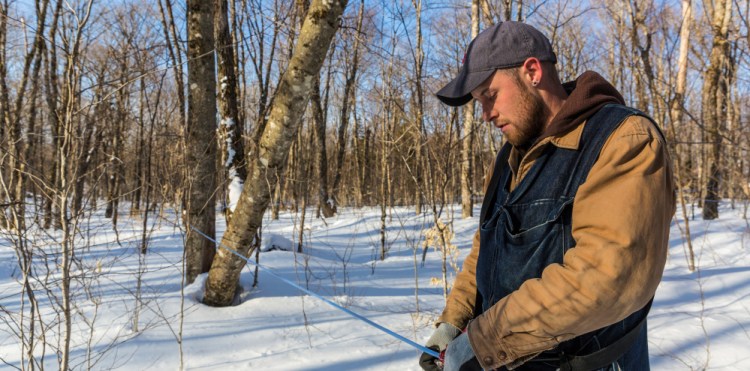Gov. LePage has never been a big fan of Land for Maine’s Future.
He shared his idea of how he thinks the popular land conservation program works in a radio interview in 2015.
“It’s the culture of status quo,” the governor told the hosts of the morning show on WVOM. “You rub my back, I’ll rub your back and we’ll make some money.”
So when one of his campaign contributors applied for $1.25 million for the development rights to a 23,000-acre commercial maple sugar forest along the Quebec border, a lot of people worried that LePage might be right.
Even though the project did not offer any public access opportunities, or preserve a unique asset, it had the backing of the governor, who had named a majority of the board members who would make the final decision.
But last week the board put all those worries to rest.
It turned down funding for the Big Six project. Although its deliberations are held in executive session, it was clear that board members were not impressed with the project, and did not list it among the 15 projects that received preliminary approval.
Landowner Paul Fortin of Madison, a donor to LePage’s campaigns and political action committee, was seeking $1.25 million from LMF funds to complete the sale of a conservation easement on the land.
The project had already received $3.8 million in federal Forest Legacy funds to purchase the $6 million easement, which would keep the land in Fortin’s hands but permanently extinguish development rights while allowing for continued maple sugar and timber operations.
But even LePage appointees expressed skepticism about the project, which is accessible only from Canada even though the land is on this side of the border. “I can’t imagine it to be worse for Americans,” said board member Harry Ricker, whose family runs a large apple orchard in Turner. “It’s awesome for Canadians, but I don’t think I was brought in to represent them.”
This is an important development in the history of a program that has received unfair criticism during the LePage years. Maine has one of the lowest ratios of publicly owned land in any state, and as development pressure spreads, LMF is one of the only ways Maine citizens can be sure that beloved forests, farms, beaches and working waterfront will be accessible in the future.
The state issues voter-approved LMF bonds to provide matching funds to groups like land trusts or municipalities to make joint investments with the restriction that the land has to be open to the public.
The grant proposals are scored according to painstaking standards. This is no favor dispenser for the politically connected.
With the Big Six decision, the board proved that the governor had been wrong. Considering that means taxpayer money has not been wasted all these years, even he should be happy to hear that.
Send questions/comments to the editors.


